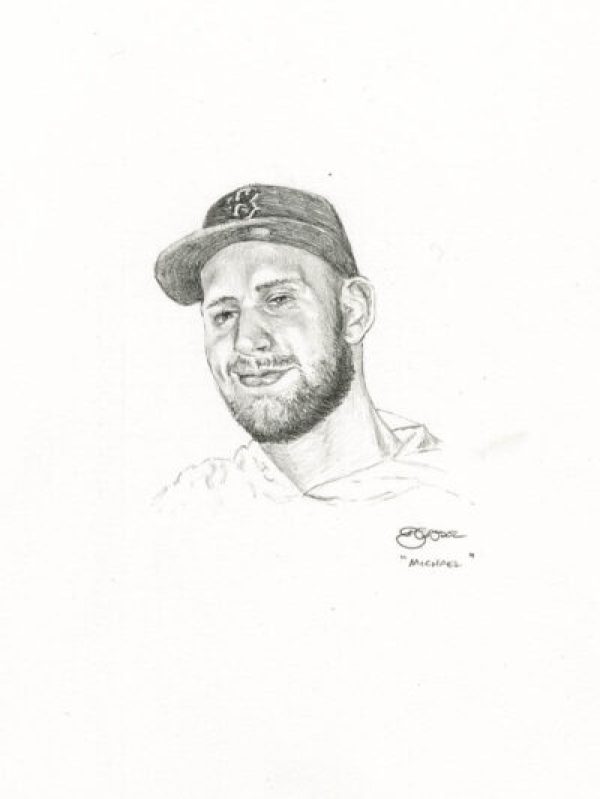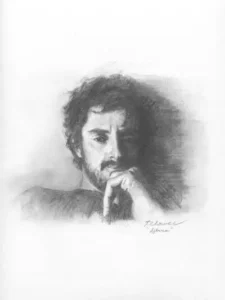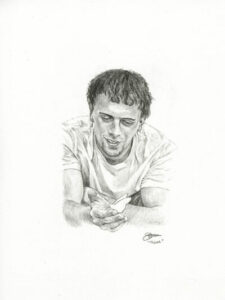Loving, funny, athletic, smart, compassionate
Michael was known for many things: his wicked left-handed pitch, his good humor, his generous use of swear words, and his whole-hearted laugh. He might’ve seemed shy at first, but he’d always be the first person to come up to a friend and say, hi! How are you doing?
Coming from a family of former aspiring MLB players, Michael began baseball at a young age. At twelve, he was traveling the east coast on his father’s team. As he grew older, he began traveling the country as the youngest player on the team. The older boys dared him to do things like run down the hotel hallway in his underwear and jump from a balcony into the pool. To their delight–and his mother’s dismay–Michael never backed down from a challenge and was always in for a good time. But when he stepped on the pitcher’s mound, that goofiness disappeared. At fifteen, he struck out eighteen players in a single game; but instead of celebrating with his teammates, he lamented that he hadn’t managed a no-hitter. At sixteen, he received letters of interest from Vanderbilt and a Mississippi college.
After being elbowed in the face during a basketball game at fourteen, he underwent surgery. The doctors prescribed Percocet. Six months later, he had another surgery. When Michael’s grades began falling, he realized he couldn’t play college-level baseball. Though he worked his senior year to bring them up again, it wasn’t enough to play. He grew frustrated, impatient, and discouraged–and his substance misuse spiraled.
“Most people don’t understand addiction,” Paula said. “Most people think people with an addiction live on the streets and that they don’t have a family who loves them, and that’s just not true.”
Michael had a close relationship with his family, particularly with his siblings. Though he and his older brother were opposites–Ronnie favoring academics and Michael athletics–they were inseparable as children. When his sister Kelsey was born, Michael, undaunted and all of two years old, held her immediately. They were always close. He had a love for children that he showered on his daughter, Mia, who inherited his kindness and sense of humor. While he was away from his family in recovery, Mia would share her juice boxes with him over video calls, and loved when he said, “potty words.”
Though this separation was difficult, Michael was never alone in his fight against addiction–and he made sure others knew, too. If a friend needed a listening ear, he was on the phone with them, urging them to seek help. After his passing, many reached out with stories of how he had convinced them to start their rehabilitation journeys. He was studying to become a substance abuse counselor before he passed away.
His own fight against addiction lasted twelve years. It was a roller coaster of use, treatment, recovery, and relapse. However, when Paula expressed her frustration with this endless cycle, Michael’s therapist told her: ‘Mrs. Mattson, every time he tries, it’s a good thing. It means he’s trying to get better.’
Paula shares Michael’s story so those with loved ones battling addiction–or those fighting it themselves–know they are not alone. She wants everyone to know it’s a disease, not a choice, and that there is help. Michael’s powerful hugs, his contagious laugh, and the sincerity of his words live on in the memories of his friends, family, and all who hear and share his story.
Michael’s mother, Paula Mattson, provided the information for this narrative.
June 8, 1988-July 14, 2014—Age 26
Portrait Artist: Jeremy Hebbel
Narrative Writer: Angela Day









